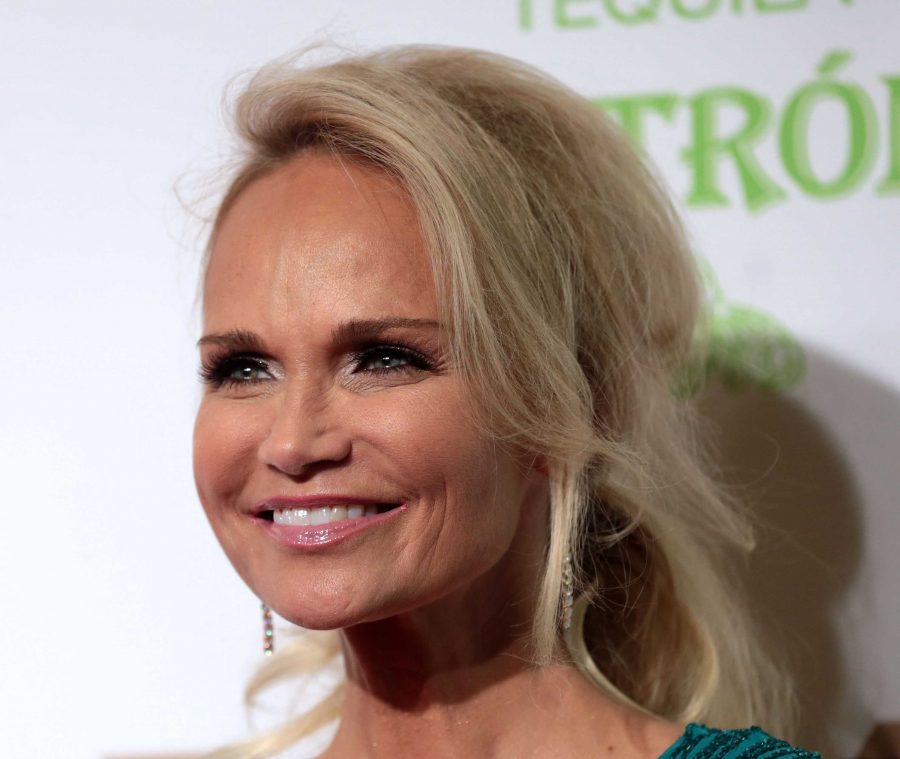For Gay Pride Month 2017, “pop culture luminary” Kristin Chenoweth penned a “love letter” to the LGBTQ community in which she told the story of a young gay man whose life was impacted by her spiritual Christian record, “As I am.” She recalls him telling her, “I’m a Christian. I’m also gay. I’ve been trying to explain to my family for years that you can be both. My family loves you, and this album is bringing our family together and helping my family to understand our common love of God. Thank you for making this album.” This was obviously a pivotal moment in Chenoweth’s life; back in college, she lost her close friend Jeff, who identified as Christian and gay, to suicide as he struggled to reconcile what he saw as his “competing” identities. Now Chenoweth is a religious ally for LGBTQ youth. Since meeting this young man in 2005, Chenoweth has leveraged her platform to remind fans that “God is love,” advocating for mainstream acceptance of religious LGBTQ people. As the headline performer for the Tabernacle Choir Christmas Concert this December, Chenoweth is walking a fine line between providing needed visibility and support to LGBTQ Latter-day Saints and inadvertently endorsing the church’s discriminatory policies towards the LGBTQ community.
Speaking to the congregation gathered in the Conference Center in Salt Lake City and around television sets across the globe, church leader President Dallin H. Oaks said, “The supernal blessing of exaltation in [heaven]… can be attained only through an eternal marriage between a man and a woman.” Rhetoric like this and the establishment of new anti-LGBTQ policies in the church have real and tragic consequences on LGBTQ people within the Latter-day Saint community, especially the youth. In Utah, the leading cause of death for young people between the ages of 14 and 21 is suicide. The state’s suicide rate has tripled since 2007, which some experts have empirically correlated to the church’s position on same-sex relationships. There is a need for a religious LGBTQ ally in our community like Kristin Chenoweth. However, to ensure that her message of “not just tolerance, but acceptance” is understood by the church, its members and LGBTQ youth in Utah, her performances at Temple Square must be matched with activism alongside the Latter-day Saint LGBTQ community.
At the first volunteer session that founder Stephanie Larsen hosted for Encircle, a singular organization headquartered in Provo which seeks to support conversations among communities of faith and LGBTQ people, Larsen demonstrated the uniqueness and need for this program in the Latter-day Saint community. When others were asked why they were interested in volunteering with Encircle, one man said, “I’m here because I’m a Mormon bishop.” The man next to him followed by saying “I’m here because I’m angry at the church, I don’t like how they’re treating LGBT individuals,” and the last said, “I’m here because I’m gay and I’m in a Mormon bishopric.” Encircle does not advise participants on faith. Instead, it serves as a refuge for LGBTQ youth, parents and allies. One of their events, the Love Louder Art Series, occurs every Wednesday and Kristin Chenoweth is the perfect volunteer to lead one of these activities. By being involved with Encircle, Chenoweth would, as a religious ally, “help cultivate an environment where LGBTQ individuals can thrive” here in Utah.
Harry Fisher was a returned missionary who served faithfully in New York State, a senior at Brigham Young University and a gospel doctrine teacher in his singles ward. He was also gay. In a heartbreaking letter to the First Presidency of the Church, his father writes, “Harry never left the church. Instead, he left his lonely apartment in Draper on a February night, drove to Israel Canyon west of Utah Lake, walked up a ridge in the snow and shot himself … The cold, icy ground above Utah Lake accepted his blood. Can you do as much?” This letter, penned in 2016, remains unanswered. There are many more individuals like Harry still struggling in our community. Chenoweth’s appearance in the Tabernacle Christmas Concert and then at a following LGBTQ community event will not prevent LGBTQ Latter-day Saints from sometimes feeling isolated in their religious communities or force church leaders to reconsider discriminatory policies. However, it may save lives and “[in] living there is hope.”



